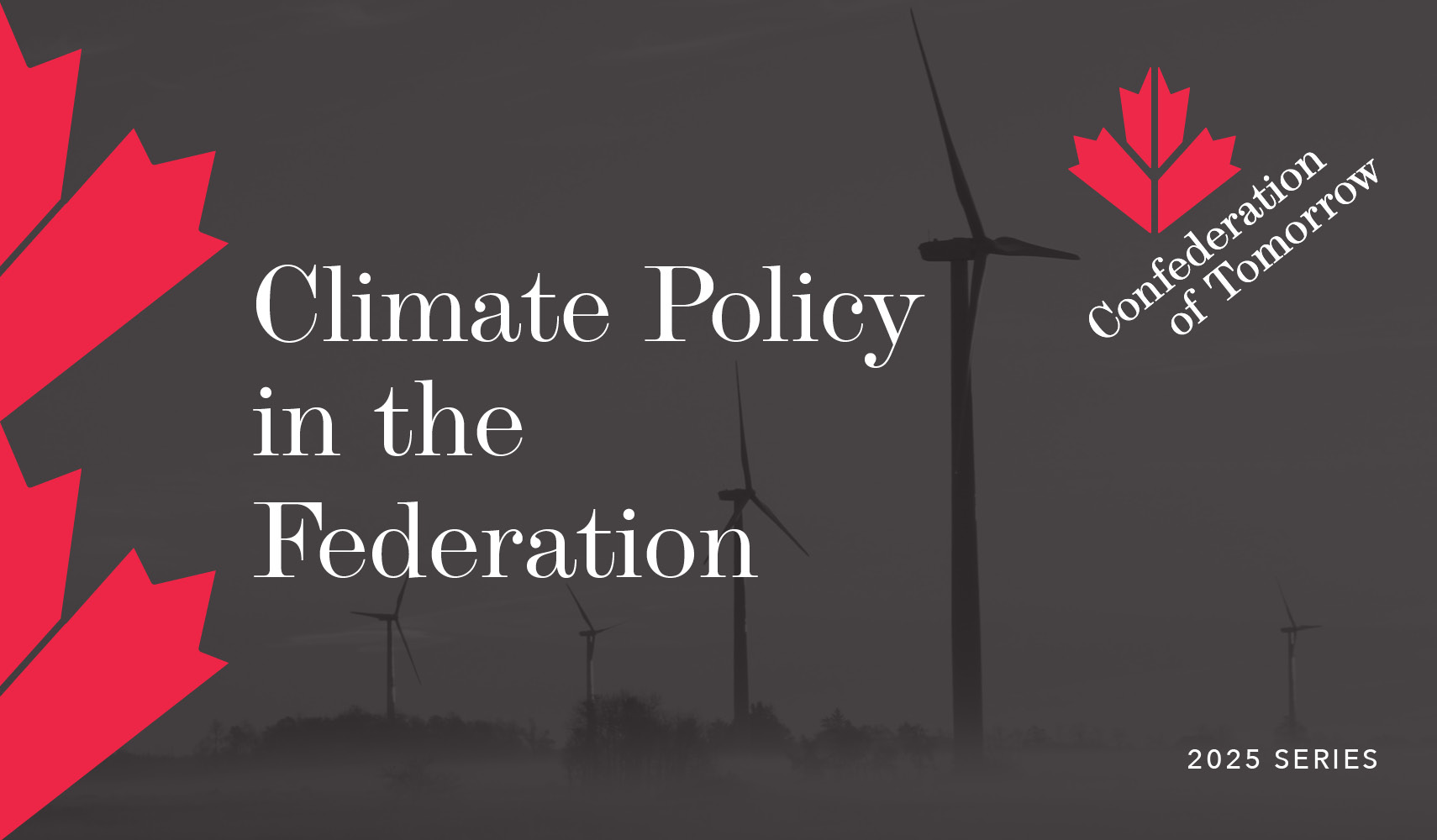Climate Policy in the Federation

Climate Policy in the Federation
The latest Confederation of Tomorrow research, conducted in May-June 2025, reveals that public concerns about climate change notwithstanding, Canadians are placing increasing priority on economic security over the importance of reducing carbon emissions. This change is especially evident in British Columbia – and, as a result, the gaps in opinions between B.C. residents and their neighbours in Alberta are narrowing.
Key findings
- Just under one in two Canadians agree that “protecting the environment is more important than protecting jobs,” but an equal proportion disagree. In British Columbia, the priority given to the environment over jobs has been dropping steadily since 2022. As a result, the gap between opinions in B.C. and its neighbouring Western provinces has narrowed. In 2022, British Columbians were much more likely than Albertans to agree that protecting the environment is more important than protecting jobs, whereas today there is essentially no difference in opinion.
- When asked to identify the country’s most important problem today, the public is most likely to name the rising cost of living, affordable housing or other economic issues. By comparison, only two percent of Canadians identify the environment or climate change as the country’s single most pressing challenge; this is the lowest percentage recorded since 2019.
- A plurality of Canadians continues to favour a gradual phase-out of fossil fuels to address climate change, but over the past year there has been an increasing preference across most of the country for a slower timetable that prioritizes jobs in the oil and gas sector.
- Across the political spectrum, Canadians’ support for a gradual phase-out of fossil fuels continues to be the plurality view, except among those who voted recently for the federal Conservative Party, where about half now endorse a jobs-first timetable. But the overall shift since 2024 away from the aggressive timing is evident across all parties, even among those who voted for the Green Party.
- Among the 10 strategies presented to fight climate change, Canadians continue to be most likely to give a high priority to ensuring all regions of Canada benefit from a strong economy, followed by keeping taxes low and making sure our businesses stay competitive with businesses in the USA. However, this year’s results also reflect a notable shift since 2021, with an increasing emphasis given to prioritizing economic development and jobs, and less so for those focused on meeting internationally-agreed upon carbon reduction targets.
- The shift in Canadians’ emphasis away from strong carbon reduction strategies toward economic development and job protection since 2021 is evident in most parts of the country. But this movement is most pronounced among residents of British Columbia and the Atlantic provinces, narrowing the gap between their views and those of people in the oil-producing Prairies.
- In 2025, Canadians are twice as likely to choose the federal government as they are to chose their provincial or territorial government as the one they trust more to address climate change. Since 2024, there has been a sharp drop in the proportion who trust neither.
About the survey:
The Confederation of Tomorrow surveys give voice to Canadians about the major issues shaping the future of the federation and their political communities. They are conducted annually by an association of the country’s leading public policy and socio-economic research organizations: the Environics Institute for Survey Research, the Centre of Excellence on the Canadian Federation, the Canada West Foundation, the Centre D’Analyse Politique – Constitution et Fédéralisme, the Brian Mulroney Institute of Government and the First Nations Financial Management Board.
The 2025 study consists of a survey of 5,391 adults, conducted between May 1 and June 16, 2025 (92% of the responses were collected between May 6 and May 29); 90% of the responses were collected online. The remaining responses were collected by telephone (both landline and cell phone) from respondents living in the North or on First Nations reserves, or from francophone respondents in New Brunswick.
For more information, contact Dr. Andrew Parkin or the Environics Institute.
This project benefits from the financial support of the Research Support Program of the Secrétariat du Québec aux relations canadiennes (SQRC) / Ce projet bénéficie de l’appui financier du Programme d’appui à la recherche du Secrétariat du Québec aux relations canadiennes (SQRC).

Final report: Climate Change Policy in the Federation
Survey tables
Note: the Confederation of Tomorrow uses separate weighting factors for the overall results, the results for residents of the three territories (the North), and for Indigenous Peoples. When reporting results for the territories (individually or as a region) or for Indigenous Peoples, please use the corresponding separate tables.
Like what you're reading? With our bi-monthly e-newsletter, you can receive even more with the latest details on current projects, news, and events at the institute.
Subscribe